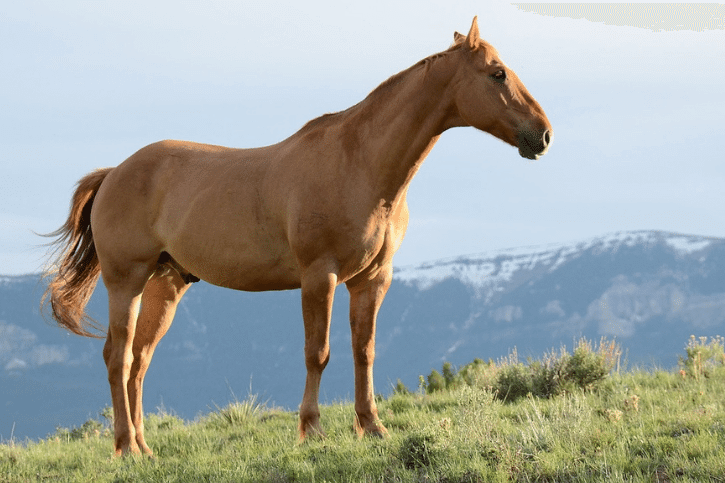What Does Horse Taste Like?
I was out at a farmer’s market the other day when I noticed a butcher’s stall selling all kinds of meats.
It’s BBQ season right now so I’m always looking for new, interesting and exciting meats to grill for friends and family.
I’m a meat connoisseur, so I like to think that I know a thing or two about the business.
This stall, however, had something I’d never tried before: horse. S
o, I decided to give it a go, and report back about how it tastes.
It’s not something that a lot of us are familiar with, so I thought I’d give my insight.
So, what does horse taste like?
Horse is a very versatile meat, and the taste is rather like a combination of beef and venison. It’s somewhat sweeter than most other red meats and is particularly gamey. Meat from older horses tends to have a darker, more typical red meat color, whereas meat from younger horses is lighter and pinker.
For a few potential reasons that I’ll get into, it’s simply not common practice to eat horse in a lot of parts of the world, but the fact is that it is a really great meat to try.
Often, the perception is of horse meat as something cheap or undesirable, but the exact opposite is in fact true.
Let’s look at it in a bit more detail.
What does horse taste like?
So, as I’ve said, horse meat is really just a rather sweet red meat.
It’s gamier than other animals, but in essence is very similar to most red meat.
The best way to think of it is as a combination of beef and venison, and that’s not all that surprising.
A horse could be somewhere between a deer and a cow.
It is a great alternative to beef, and is packed with lots of essential vitamins and minerals and a very high protein content.
So, there’s really nothing especially unhealthy or undesirable about horsemeat.
Many places in the world do enjoy it regularly, but the simple fact is that in the U.S., and indeed in many countries in the west, eating horse is simply a taboo.
But is it actually illegal?
Is it legal to eat horse in the United States?
The question is actually pretty complex.
Some states, like California and New York, have state-wide prohibitions against the sale or slaughter of horses for meat.
You cannot buy or sell horses, or their meat, for the purposes of consumption.
That is strictly illegal in certain states, although there is no federal law banning it nationwide.
From 2006 to 2011, it was effectively illegal to raise horses for meat.
There are currently no horse slaughter houses in the U.S., and so there is effectively nowhere you can buy domestic horse meat.
The important part, though, is that it is just the sale, slaughter and raising as meat that is illegal. The consumption itself is much, much murkier.
The simple fact is that, for the most part, you can order horse meat prepared in another country to be consumed in the U.S.
There’s nothing illegal about that.
Horse jerky, for example, is quite popular, and as I’ll get into in a short while, in parts of the two countries that border America, eating horse meat is common, so it frequently makes it way over the border.
Equally, horses in the U.S. can be sold to foreign consumers who intend to slaughter the animal for meat.
So, the real legality is about selling and slaughtering horses on American soil.
But, why these rules?
Why is horse off the menu?
Why is horse meat banned?
The simple reason is taboo.
Many people consider horsemeat to be cheap and inferior, and lacking the health benefits of other meats.
Certainly when it comes to something like cattle farming, the practice is so standardized that you know what you’re getting across the industry.
Horse meat is far less regulated.
According to the Humane Society, horsemeat is unfit for human consumption because of the uncontrolled administration of drugs before the slaughter.
Again, this is a problem of regulation.
The other fact is that, historically, horses are simply too valuable for other duties to be slaughtered for meat.
It was seen as a sign of desperation, such as during particularly troubled wartime.
If you kill a horse for meat, it means you didn’t have any other animals left.
Finally, the biggest legal hurdle for those wanting to produce horsemeat is that Congress has banned funding for horsemeat inspections, and it is illegal to sell or serve meat that hasn’t been inspected.
So, which countries do eat horse meat?
Which countries eat horse meat?
There are a number of countries where eating horse meat is common practice.
In Mexico, for example, horses are eaten in many parts of the country, and not just in economically deprived areas.
It’s a popular cuisine all over the country.
Quebec, in Canada, is another region which favors horsemeat.
So, Canada or Mexico may be your best bet for trying horse meat!
So, eating horse meat in the U.S. involves a great deal of legal hurdles.
It’s seen as taboo and so manufacturers, for the most part, simply have no reason to raise horses for meat.
It’s very scarce, then, and you’re hard-pressed to find horse meat to try anywhere in the country.
That said, it’s actually very tasty meat, and ordering it from another country is a perfectly valid way to try it.
